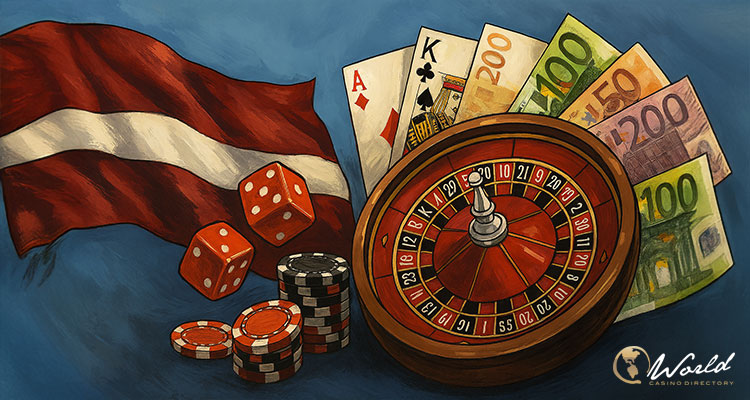The Latvian government’s decision to accelerate planned gambling tax increases by one year has drawn sharp criticism from the country’s leading gaming association. Operators warn that the new rates, set to take effect in January 2026, could undermine the state’s own revenue projections while forcing dozens of venues to shut down.
Higher Rates Brought Forward
Originally scheduled for 2027, the new tax structure will now begin on January 1, 2026, after officials announced the change in September. The Ministry of Finance projects the measure will deliver an additional €9.2 million, with €9 million allocated to the state budget and €175,000 to local municipalities.
The hikes affect several categories of gambling. Annual taxes for slot machines will increase from €6,204 to €7,440, while charges on roulette, card, and dice tables will climb from €33,696 to €40,440. Revenue-based taxation will also rise, with telephone betting moving from 15% to 18%, online gambling from 12% to 15%, and bingo from 10% to 12%.
Finance minister Arvils Ašeraden presented the new figures as part of the 2026 budget package, which seeks to raise €565 million in extra funding for security, family support, and education. Parliament is expected to vote on the package in October.
The Association of Licensed Gambling Operators in Latvia (LLAB) has strongly objected, arguing that the government’s forecasts are unrealistic. The group predicts that higher taxes will drive more than 20 gaming halls and at least 10 tables out of business next year, causing an estimated shortfall of €2.5 million instead of the surplus claimed by the Ministry.
“By raising the tax rates on gaming halls and machines, the promised budget increase will not happen,” said Juris Celmārs, representative of the LLAB and chairman of SIA Olympic Casino Latvia, in the regulator’s press release. “On the contrary, budget revenue will decrease.”
LLAB further criticized the Ministry of Finance for advancing the timetable without consulting stakeholders. It described the revenue estimates as “misleading,” stating they fail to account for declining turnover in the land-based sector and a steady reduction in gaming hall numbers.
Shrinking Land-Based Market
Industry data supports these concerns. The number of gambling halls in Latvia has declined by more than 70% over two decades, dropping from 327 in 2005 to just 168 by mid-2025. Slot machine numbers have also decreased, falling from 4,916 at the start of 2024 to 4,037 by September 2025.
This contraction has already affected revenues. Land-based slot machine income slipped by 12% in the first half of 2025 to €55 million, while table games such as roulette and blackjack recorded a 12.5% year-on-year drop, totaling €4.7 million.
LLAB notes that a 20% tax increase imposed in early 2024 led to the closure of 24 gambling halls, a trend they expect will accelerate under the new rates. The association points to similar developments abroad, citing data from the Netherlands where a recent tax rise coincided with a 25% decline in gross gaming revenue.
Adding to the complexity is the Constitutional Court of Latvia’s 2024 ruling that overturned a Riga citywide ban on gambling halls. Although the judgment deemed the prohibition unconstitutional, operators say the sector remains fragile after years of regulatory pressure.
Despite government assurances, the industry remains wary. LLAB insists that policymakers have underestimated the long-term consequences of repeated tax hikes, which it argues will further reduce employment and investment. In 2023, 2,722 people were employed across Latvia’s 194 amusement arcades, three casinos, one bingo hall, and 76 betting shops.
With venue numbers dwindling and operating costs rising, many operators say they face the risk of closure rather than expansion. “Not only are the principles of good governance not followed, but misleading forecasts have also been made about the impact of tax changes on budget revenues,” said Celmārs.
Whether the higher rates will deliver the €9.2 million promised remains uncertain. For now, Latvia’s gambling sector braces for another year of contraction as policymakers push forward with fiscal changes that operators argue could do more harm than good.


